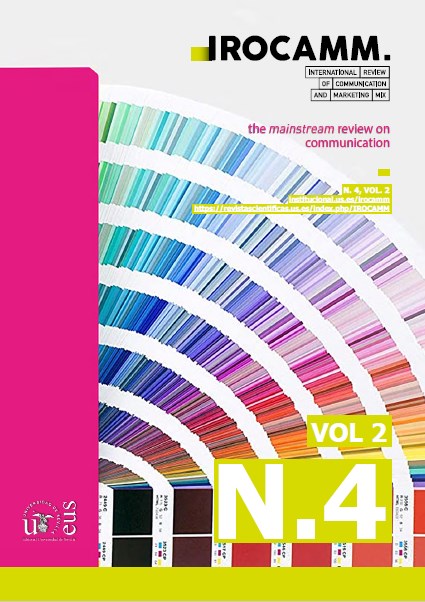Abstract
Gili Eco Trust is a non-profit foundation with aim to change people behaviour to care more about the environment to realize Gili Trawangan Zero Waste. Garbage is a severe problem in Indonesia, including Gili Trawangan. The increase of tourists has an impact on the amount of waste produced. This study aims to determine the social marketing strategy of Gili Eco Trust in forming public awareness about the environment to realize Gili Trawangan Zero Waste and describe the inhibiting factors. This study utilized a qualitative research method with a case study approach. The findings were obtained from interview, observation, and documentation. This study revealed that Gili Eco Trust has strategic steps to change people’ behavior to realize Gili Trawangan Zero Waste. The reduce, reuse, and recycle movement has become the foundation of Gili Eco Trust to educate people. It was lowered into four social products: 1,500 Trash Cans, Debris Free Friday, Waste Bank, and Gili Tour Recycle. The collaboration between Gili Eco Trust and the Environment-Concerned Community Front has a vital role in changing people’s behavior. Based on Kotler’s social marketing, Gili Eco Trust should improve several social analysis planning and evaluation elements, which should be carried out systematically and structured.
Literaturhinweise
Adharsyah, T. (2019). Sebegini Parah Ternyata Masalah Sampah Plastik di Indonesia. Retrieved from: https://www.cnbcindonesia.com/lifestyle/20190721140139-33-86420/sebegini-parah-ternyata-masalah-sampah-plastik-di-indonesia
Andreasen, A. R. (1994). Social Marketing: Its Definition and Domain. Journal of Public Policy & Marketing, Vol. 13 (1), Spring 1994, 108-114.
Bach, C. & Alnajar, E. (2018). The Impact of Social Marketing on Public Behavior. European Journal of Engineering and Technology Research. 1, 5 (Jul. 2018), 17-22.
Bahagijo, M. (2020). Bank Mandiri’s CSR Program in Lombok: Gili Trawangan Bebas Sampah. Retrieved from: https://waste4change.com/bank-mandiris-csr-program-in-lombok-gili-trawangan-bebas-sampah/
Budilestari, N., Hutomo, M., & Ardiwidjaja, R. (2014). Permasalahan Lingkungan di Sempadan Pantai Taman Wisata Perairan Gili Trawangan, Nusa Tenggara Barat. 9(1): 91-107.
Indriani. (2019). Mengelola sampah di daerah wisata ala Gili Eco Trust. Retrieved from: https://www.antaranews.com/berita/1027992/mengelola-sampah-di-daerah-wisata-ala-gili-eco-trust#mobile-nav
Khafid, S. (2020). Tutup Tahun, Kunjungan Wisman ke Gili Indah Meningkat. Retrieved from: https://travel.tempo.co/read/1290407/tutup-tahun-kunjungan-wisman-ke-gili-indah-meningkat/full&view=ok.
Kotler, P. and Zaltman, G. (1971). Social Marketing: An Approach to Planned Social Change. Journal of Marketing, Vol. 35, Juli 1971, 3-12.
Muhajir, A. (2016). Liputan Gili Matra : Ancaman Pariwisata Massal terhadap Lingkungan Gili Matra (Bagian 3). Retrieved from: https://www.mongabay.co.id/2016/10/13/liputan-gili-matra-ancaman-pariwisata-massal-terhadap-lingkungan-gili-matra-bagian-3/
Muhajir, A. (2016). Liputan Gili Matra : Gili Eco Trust, Penjaga Keindahan Gili Trawangan (Bagian 4). Retrieved from: https://www.mongabay.co.id/2016/10/19/liputan-gili-matra-gili-eco-trust-penjaga-keindahan-gili-trawangan-bagian-4/
Nazir, M. (2017). Metode Penelitian. Bogor. Ghalia Indonesia
Priherdityo, E. (2017). Gili Trawangan Kesulitan Tangani Masalah Sampah Wisatawan. Retrieved from: https://www.cnnindonesia.com/gaya-hidup/20170210140505-269-192632/gili-trawangan-kesulitan-tangani-masalah-sampah-wisatawan
Pudjiastuti, W. (2016). Social Marketing: Strategi Jitu Mengatasi Masalah Sosial di Indonesia. Jakarta. Yayasan Pustaka Obor Indonesia.
Rizal, A. (2020). Buku Ajar Manajemen Pemasaran di Era Masyarakat Industri 4.0. Yogyakarta. Deepublish.
Román-San-Miguel, A., & Díaz Cruzado, J. (2019). Communication and advertising in NGDOs: Present and future. IROCAMM-International Review Of Communication And Marketing Mix, 2(1), 95–101. https://doi.org/10.12795/irocamm.2019.v02.i01.09
Sugiyono. (2017). Metode Penelitian: Kuantitatif, Kualitatif, dan R&D. Bandung. Alfabeta.
World Bank Group. (2018). Hotspot Sampah Laut Indonesia. Retrieved from: http://documents.worldbank.org/curated/en/642751527664372193/pdf/126686-INDONESIA-29-5-2018-14-34-5-SynthesisFullReportAPRILIND.pdf

Dieses Werk steht unter der Lizenz Creative Commons Namensnennung - Nicht-kommerziell - Weitergabe unter gleichen Bedingungen 4.0 International.
Copyright (c) 2021 IROCAMM - International Review Of Communication And Marketing Mix

